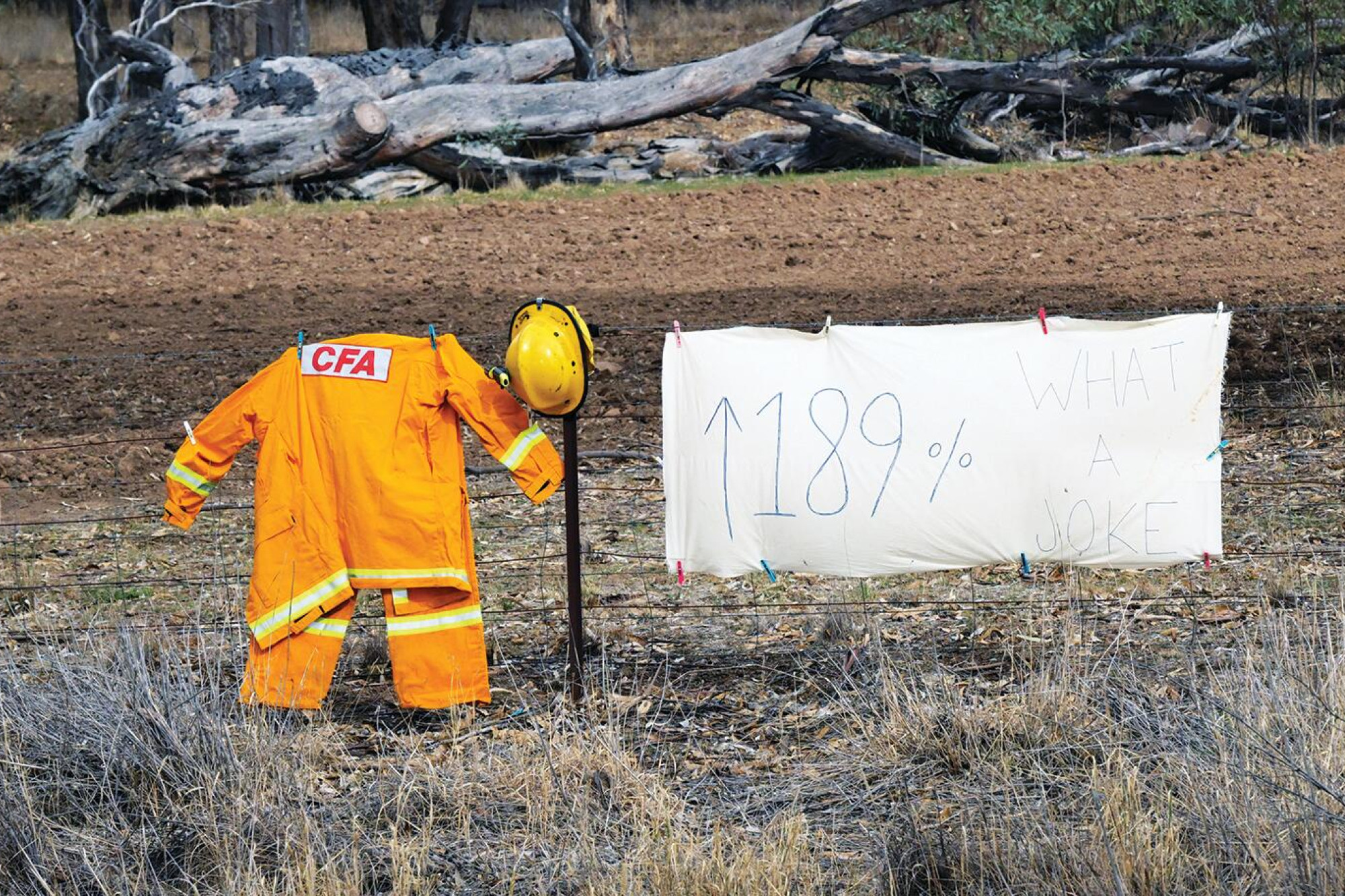Agriculture
17 May, 2025
Loddon numbers growing for Tuesday's tax protest
LODDON Mayor Dan Straub and some councillors are expected to join local farmers and volunteer firefights in a protest at State Parliament on Tuesday against the new emergency services tax. Cr Straub has been in contact with councillors throughout...

LODDON Mayor Dan Straub and some councillors are expected to join local farmers and volunteer firefights in a protest at State Parliament on Tuesday against the new emergency services tax.
Cr Straub has been in contact with councillors throughout the day as buseses are being organised from Boort, Pyramid Hill and Wedderburn.
The Wedderburn bus will also be picking up passengers in Inglewood, Bridgewater and Marong.
The new tax, passed by the Government with support of the Greens and Animal Justice Party, will see farmers hit with a 150 per cent tax increase. One farmer, now too old to be an operational firegfighter, told the Loddon Herald he feared for his farming business.
Another said that because he had been unable to complete compulsory trainining, he feared being ineligible to apply for a tax refund that the Government says will be available on the principal place of residence.
The emergency services tax furore comes as report say the popularity of Premier Jacinta Allan, also the member for Bendigo East, is plumetting in regional Victoria.
In the latest Loddon Herald, editor Chris Earl's op-ed looks at the parallels between Ms Allan's crisis and that faced by then-British Prime Minister Margaret Thatcher.
RURAL and regional members of Parliament are in for their barbed wire moment.
Tow the party line or stand with voters. Standing with legs either side of the barbed wire fence could prove fatal with one little slip.
MPs voting in Parliament on legislation that bulldozes through plans for renewable energy projects or imposes a new and expanded, emergency services tax are incurring the rising wrath of country people.
The anger is visible, as seen when volunteer firefighters arrived outside the electorate office of Bendigo East MP and premier Jacinta Allan last Friday.
Parked the trucks, threw down the keys and walked off for a while. Can’t afford a 186 per cent increase in the emergency services tax, they say.
A tax, perhaps surprisingly, that came from nowhere, dumped on an unsuspecting Victoria days before Christmas. A levy that signals major taxation reform in the state without community conversation backed up by economic modelling.
Two senior Government ministers - Treasurer Jaclyn Symes and Harriet Shing - even took to the airwaves to say farmers faced more natural disasters than other Victorians, their justification for the latest whack on primary production.
Ripon MP Martha Haylett last week told the Loddon Herald she had raised farmer concerns with Ms Allan and Ms Symes ... after voting for the emergency services tax legislation in Parliament.
Ms Haylett has since been confronted in the electorate by firies demanding answers. To date, Ms Haylett has not visited Loddon Shire communities in her electorate to talk about a tax the council say will add 24.7 per cent to rate notices.
Ms Symes also says she already has a list of fire brigades that will receive new trucks. A request to the minister to share details of Loddon brigades to benefit has so far gone unanswered.
Remember, that under the current fire services levy, only one third of the money collected by Loddon Shire and sent down to State Revenue Office has been returned to the area where there are brigades with trucks 30 years old.
Jacinta Allan is a veteran of the Parliament, Martha Haylett a first-term novice. They are both pushing a doubling of the tax to now fund not only the CFA but the State Emergency Service and multiple bureaucratic agencies.
There are similarities in the rising tide of disappointment to the ultimate fate of British Prime Minister Margaret Thatcher who tried to push through a community charge, dubbed the “poll tax”, to fund local government in 1989. That was the beginning of the end for Baroness Thatcher.
There’s one slight difference in Victoria at the moment. The disconnect in attitudes between country and city.
It could be argued that Ms Allan has her Thatcher crisis in the bush but it’s yet to be realised in Melbourne. But be careful, MPs in rural and regional electorates. Straddling that barbed wire fence could become electorally fatal locally, even if the Government retains sufficient favour to be returned in November 2026.